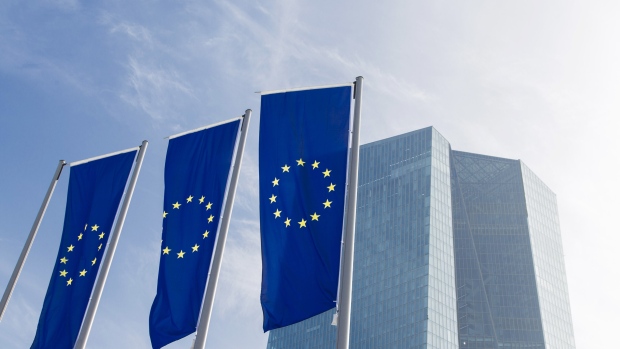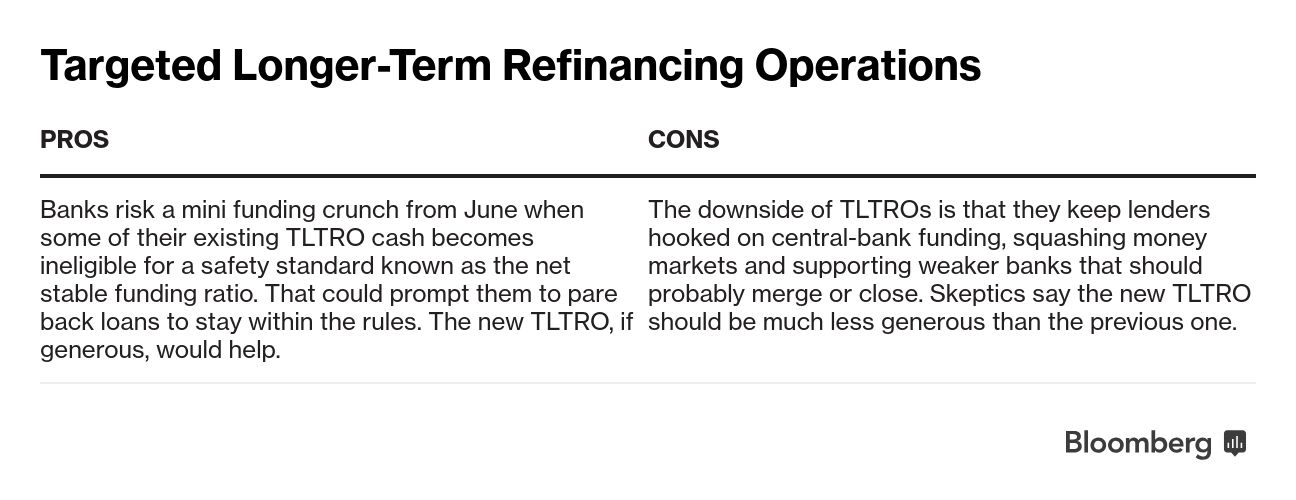Jun 6, 2019
ECB strengthens stimulus to boost euro area amid inflation slump
, Bloomberg News

The European Central Bank stepped up support for the euro-area economy by extending its pledge to keep interest rates at record lows, while also reaching agreement on how to infuse lenders with more cheap cash.
The Governing Council, which met in Vilnius, now expects borrowing costs to stay on hold at least through the first half of 2020, or six months longer than previously. The cost of long-term bank loans can fall as low as the deposit rate, currently minus 0.4 per cent, plus 0.1 percentage point.
“The Governing Council now expects the key ECB interest rates to remain at their present levels at least through the first half of 2020, and in any case for as long as necessary to ensure the continued sustained convergence of inflation to levels that are below, but close to, two per cent over the medium term.”- ECB statement
The euro was trading 0.4 per cent higher at $1.1260 at 1:54 p.m. Frankfurt time. German bond yields rose.

The ECB’s move echoes dovish turns by central banks elsewhere as the global economy is buffeted by trade tensions. Australia cut interest rates on Tuesday for the first time in three years, the U.S. Federal Reserve has signaled an openness to easing if necessary, and the Bank of Japan might add stimulus. India reduced its key rate on Thursday and changed its stance to accommodative.
President Mario Draghi will hold a press conference at 3:30 p.m. Vilnius time to present updated economic forecasts and elaborate on the Governing Council’s discussions.
Policy makers also agreed on the terms for a new round of long-term loans to banks, which will be offered starting in September. The long-term loans to banks will initially be priced at the main refinancing rate plus 0.1 percentage point, but can fall lower if banks meet lending quotas, according to the statement.
The ECB’s actions might be the last salvo for Draghi, who retires in October. A decision on his successor has yet to emerge from haggling among European politicians.
Recent euro-zone economic data have been mixed, and in some cases signal the slowdown may be bottoming out. Figures on Thursday morning showed German factory orders rising for a second straight month in April, and euro-zone GDP was confirmed as being fairly robust in the first quarter, led by investment and household spending.
Still, inflation has weakened and market-based inflation expectations are at their lowest since 2016. Before Thursday’s meeting, investors were betting on a cut in the deposit rate next year, and some economists suggested QE could be restarted.
--With assistance from Fergal O'Brien, Jana Randow, Zoe Schneeweiss, Lukas Strobl, Iain Rogers, David Goodman, Jill Ward, Catherine Bosley, Carolynn Look, William Horobin, Milda Seputyte, Jeannette Neumann, Catarina Saraiva and Kristian Siedenburg.